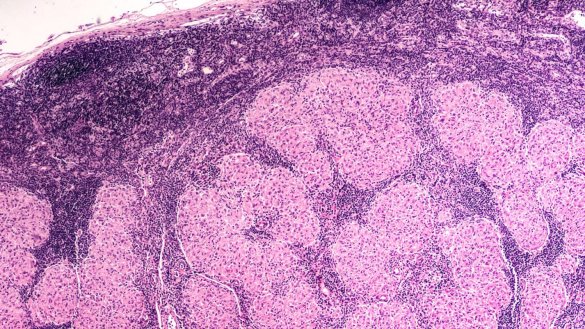
What Is Autoimmune Hepatitis?
Autoimmune Hepatitis impacts the liver by causing inflammation when the immune system attacks the liver tissue. The liver works to filter waste, makes bile to digest food, and stores sugar for energy. The chronic inflammatory liver disease of autoimmune hepatitis continues to attack the liver cells leading to liver damage in many patients. In many cases, autoimmune hepatitis is linked to other types of autoimmune diseases. Rocky Mountain Gastroenterology provides diagnosis and treatment of autoimmune hepatitis to patients in Colorado. We’re dedicated to helping patients find relief from digestive disorders and diseases.
What Causes Autoimmune Hepatitis?
There is no exact cause for autoimmune hepatitis. It is commonly found in females more than males. The autoimmune disease is often genetic and develops in patients with a history of infections like hepatitis A, B, or C. It is most likely to develop in patients with other autoimmune conditions, including:
- Diabetes
- Thyroiditis
- Ulcerative Colitis
- Grave’s Disease
- Hemolytic anemia
- Celiac Disease
Symptoms of Autoimmune Hepatitis
Signs and symptoms of autoimmune hepatitis often don’t show in the early stages of the disease. The symptoms often vary from patient to patient. The most common autoimmune hepatitis symptoms include:
- Fatigue
- Jaundice
- Mild Flu-Like Symptoms
- Itching
- Abdominal Pain
- Joint Pain
- Enlarged Liver
- Spider Angiomas
Types of Autoimmune Hepatitis
There are two types of autoimmune hepatitis. We’ll determine which type you have during our diagnosis. The types of autoimmune hepatitis include:
Type 1 – Type 1 autoimmune hepatitis is the most common type. The disease can occur at any age and commonly affects people with other autoimmune disorders.
Type 2 – Type 2 autoimmune hepatitis is most common in children, especially girls and young people. Patients with other autoimmune diseases may be more susceptible to Type 2 autoimmune hepatitis.
Autoimmune Hepatitis Diagnosis
We can diagnose autoimmune hepatitis in a few ways. The most common ways to diagnose autoimmune hepatitis include:
- Blood tests
- Liver function tests
- Coagulation tests
- Electrolyte tests
- Autoimmune antibodies
- Liver biopsy
Autoimmune Hepatitis Treatment
Autoimmune hepatitis treatment is most successful when found in the early stages to enable disease control. The most common autoimmune hepatitis treatments include medicine like immune system suppressors and corticosteroids that help slow down the overactive immune system. Some cases of autoimmune hepatitis disappear without medication, but most patients experience chronic autoimmune hepatitis. The disease can lead to cirrhosis of the liver and cause liver failure. If this is the case, the only treatment is a liver transplant.
Why Choose Rocky Mountain Gastroenterology?
Rocky Mountain Gastroenterology (RMG) is the largest GI practice in the Rocky Mountain Region. Since 1997, we’ve grown into multiple office locations, six state-of-the-art Endoscopy Centers, and a specialized pathology laboratory. We’re a physician-owned practice that accepts multiple insurance plans. Our team is committed to caring for patients with digestive tract diseases and disorders. We perform over 30,000 procedures each year in our Endoscopy Centers. RMG is affiliated with most of the Denver area hospitals.
Talk to Our Team About Autoimmune Diseases
Our team understands any type of autoimmune disease can be scary. We stand beside you every step of the way, helping you understand the treatment and diagnosis of autoimmune diseases. We will work with you to treat your autoimmune hepatitis with the highest quality treatments. Contact us today to schedule your appointment.
Go back